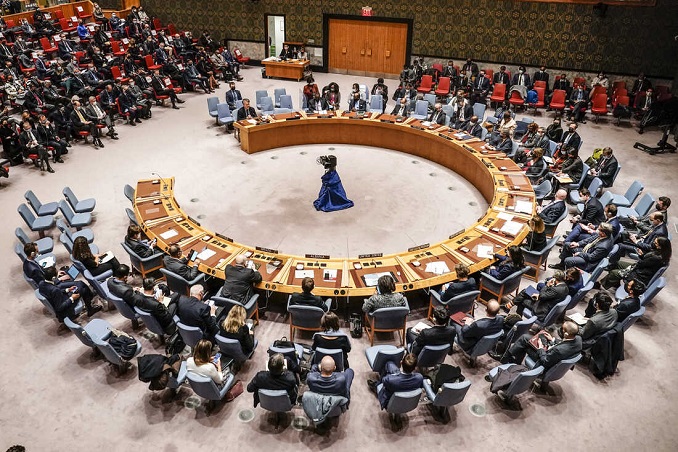![]() Sudan – South Sudan needs to put its act together and get ready for elections- this is the common thought between the US and United Nations. Addressing a meeting at the UN Security Council recently, the US ambassador to the UN, Linda Thomas-Greenfield, said that elections were imperative in order to ‘work toward a true democracy.’ For this, the South Sudanese government needed to move swiftly to implement the provisions set out in an agreement on revitalizing the peace process.
Sudan – South Sudan needs to put its act together and get ready for elections- this is the common thought between the US and United Nations. Addressing a meeting at the UN Security Council recently, the US ambassador to the UN, Linda Thomas-Greenfield, said that elections were imperative in order to ‘work toward a true democracy.’ For this, the South Sudanese government needed to move swiftly to implement the provisions set out in an agreement on revitalizing the peace process.
An agreement would need commitments to set up “an inclusive constitution drafting process, public financial management reform, transitional security arrangements, and transitional justice mechanisms.” It is not a hidden fact that South Sudan has been lagging behind in getting their elections streamlined.
It is less than a year left to elections, if South Sudan does not take its election process seriously, they are risking plunging themselves into a war like situation again. Since splitting from Sudan, as a young nation, from 2011, the country has been missing stability.
Related Posts
Between 2013 and 2018, it descended into a bloody civil war between sworn enemies Riek Machar and Salva Kiir, which left nearly 400,000 dead and millions displaced.
A peace deal signed in 2018 led to power-sharing in a national unity government sworn in February 2020, with Kiir as president and Machar as vice-president.
But the provisions of the peace agreement remain largely unimplemented, due mainly to persistent disputes between the two rivals. Further the speakers at the UN Security Council meeting have expressed how South Sudan continues not to be ready for elections in early 2023. Riya William Yuyada, a human rights and peace activist with Crown the Woman, a local feminist non-governmental organization promoting women’s human rights in South Sudan, in her briefing, said that conflict had become endemic. “We are tired of sharing the same stories of rape, child marriage, war, trauma, and loss,” she said. After enduring decades of conflict, “the resilience of South Sudanese is fading”, Yuyada noted, adding that since the signing in 2018 of the Revitalized Agreement, there has been “limited to no” progress in implementing crucial provisions related to security sector reform, constitutional and electoral reform, judicial reform and transitional justice.

